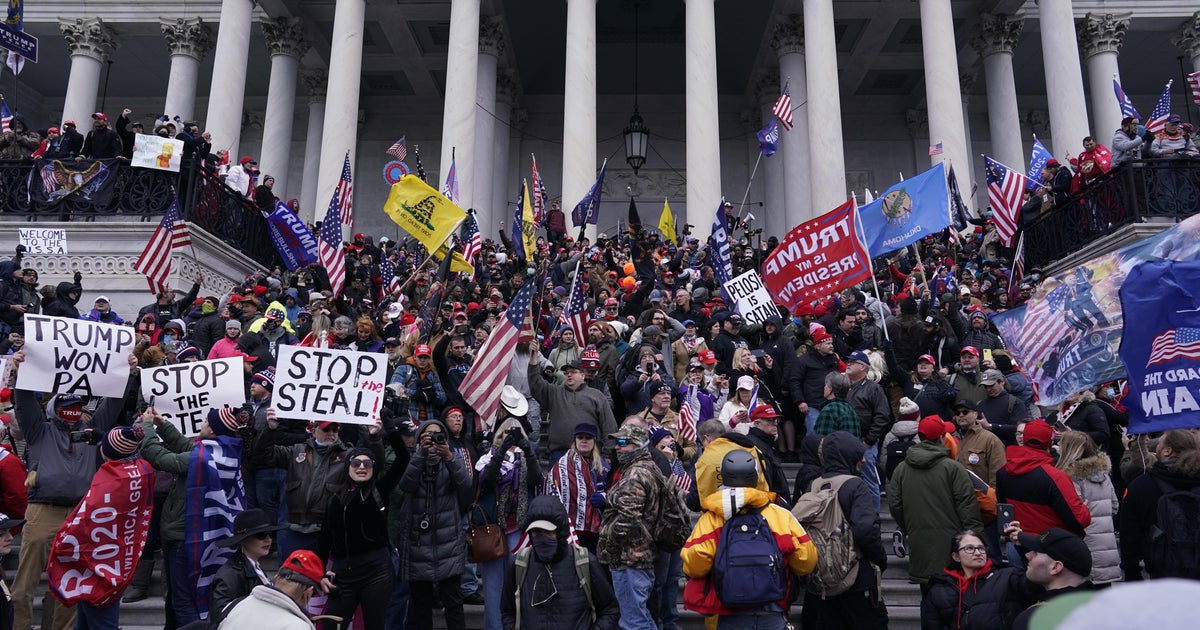
A new report by the Justice Department inspector general found that the FBI failed to commission the dozens of FBI field offices across the country to gather information from its own confidential human sources ahead of the breach of the U.S. Capitol on Jan. 6, despite telling Congress that it had done so.
Had the FBI’s field office canvassed those sources, it “could have helped the FBI and its law enforcement partners with their preparations in advance of January 6,” the report said.
FBI Deputy Director Paul Abbate told investigators that not canvassing the nation for further information was the “basic step that was missed.”
The inspector general determined the FBI’s inaccurate reporting to Congress about the lack of field office coordination was not intentional.
“Our review of documented CHS reporting in FBI field offices as of January 6 did not identify any potentially critical intelligence related to a possible attack on the Capitol on January 6 that had not been provided to law enforcement stakeholders prior to January 6,” the inspector general said.
More than two dozen individuals utilized by the FBI as confidential human sources were in Washington, D.C., on Jan. 6, 2021, ahead of the Capitol breach, but none were authorized by their handlers to illegally enter the Capitol building or join the riot that day, the inspector general’s report said.
No undercover FBI agents or employees were found to have attended the Jan. 6 protests or taken part in the attack, the report said.
The findings, released Thursday, revealed that federal investigators tasked just three of the 26 FBI sources in the city that day to gather information for domestic terrorism cases, and the remaining individuals were not directed to be there. In all, four confidential human sources entered the Capitol building during the riot and 11 were on restricted Capitol grounds.
According to the Justice Department, confidential human sources are those “believed to be providing useful and credible information to the FBI and whose identity, information, or relationship with the FBI warrants confidential handling.” Federal investigators conventionally utilize these individuals to report on members of criminal organizations and provide information that would be difficult to obtain otherwise. The use of confidential human sources around the time of the Jan. 6 Capitol breach has been a point of contention on Capitol Hill, and outgoing FBI Director Christopher Wray has faced questions from Republican lawmakers about the practice.
In the days after the riot, questions surfaced about the intelligence gathered ahead of the attack and whether it was properly acted upon by federal investigators. Justice Department Inspector General Michael Horowitz found that the FBI correctly identified a potential for violence as Congress was set to certify the results of Joe Biden’s 2020 victory over Donald Trump and took appropriate steps in preparation. The U.S. Capitol Police — not the FBI — led law enforcement efforts to protect the Electoral College certification that day, while other agencies provided support.
On the eve of the riot, the FBI’s field office in Norfolk, Virginia, issued a raw intelligence report warning of an anonymous social media thread threatening violence at the Capitol, CBS News previously reported. But, according to Capitol Police officials, that information was never shared with their agency. The FBI has defended its handling of the intelligence.
“Many of these 26 confidential human sources had provided information relevant to the January 6 Electoral Certification before the event and…a few CHSs also provided information about the riot as it occurred,” Horowitz wrote. The report revealed some sources were in contact or traveling with members of extremist groups like the Proud Boys and Oath Keepers, organizations whose leadership has since been convicted at trial of seditious conspiracy as a result of the attack.
In response to the report, the FBI said it disagreed with “certain factual assertions…regarding the manner of specific steps, and the scope of the canvass undertaken by the FBI in advance of January 6, 2021.”
After the Capitol breach, the FBI launched one of the largest federal probes in American history, and prosecutors have since charged more than 1,500 defendants with crimes ranging from illegal entry into the Capitol building to assaulting police and seditious conspiracy.
Nearly 1,000 of those charged have entered into plea deals with the Justice Department and admitted guilt. Another 200 have been convicted at trial before a judge or jury.
Notably, the inspector general’s report revealed that none of the FBI’s confidential human sources who entered the Capitol or restricted grounds that day were among the hundreds criminally charged for doing so.
In response to the report’s findings, the U.S. attorney’s office in Washington, D.C., which has spearheaded the Capitol breach investigation, said, “The D.C. U.S. Attorney’s Office generally has not charged those individuals whose only crime on January 6, 2021 was to enter the restricted grounds surrounding the Capitol, which has resulted in the Office declining to charge hundreds of individuals; and we have treated the CHSs consistent with this approach.”
Despite President-elect Donald Trump’s pledge to issue pardons for some of the defendants, federal prosecutors have continued to charge individuals for alleged crimes tied to the Capitol attack in the weeks after the 2024 presidential election.
Some defendants and their legal teams have pushed for early release from prison or a pause in their proceedings ahead of Trump’s inauguration. Federal judges overseeing the cases have mostly denied those requests. Advocates on behalf of the defendants have urged Trump to issue pardons.
“I’m going to be acting very quickly,” Trump said earlier this week in an interview with NBC News. Trump has tapped former Florida Attorney General Pam Bondi as his nominee to lead the Justice Department. She and other department officials could be involved in the legal processes involved with any pardon decisions.
